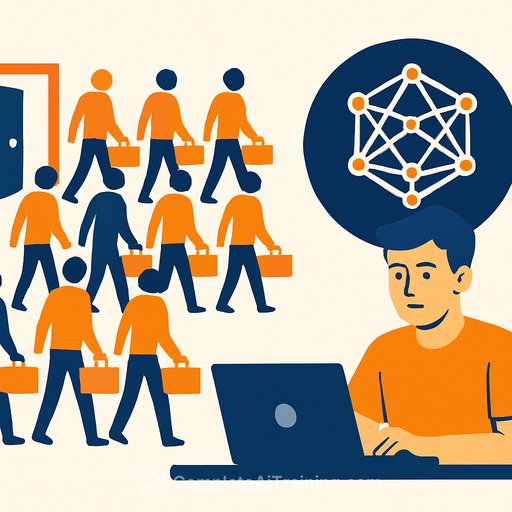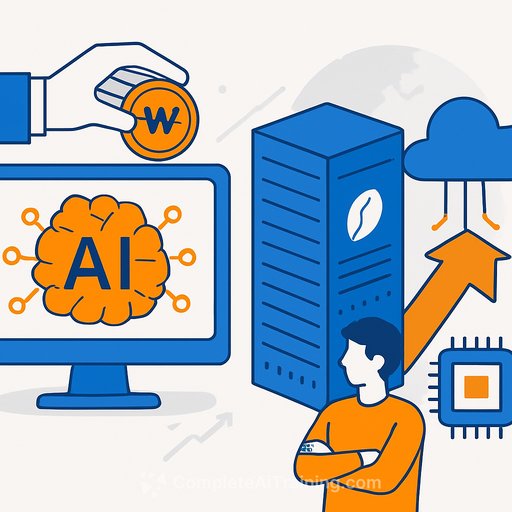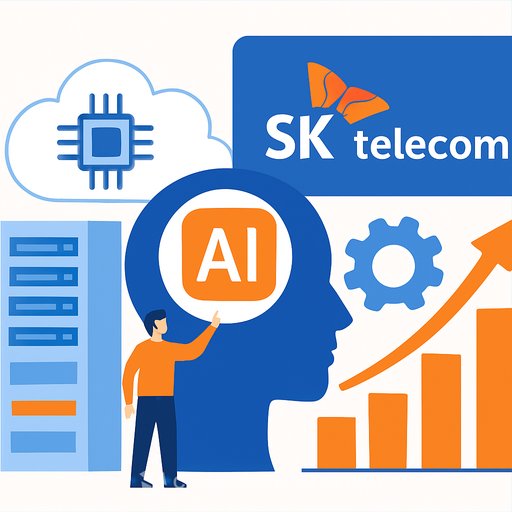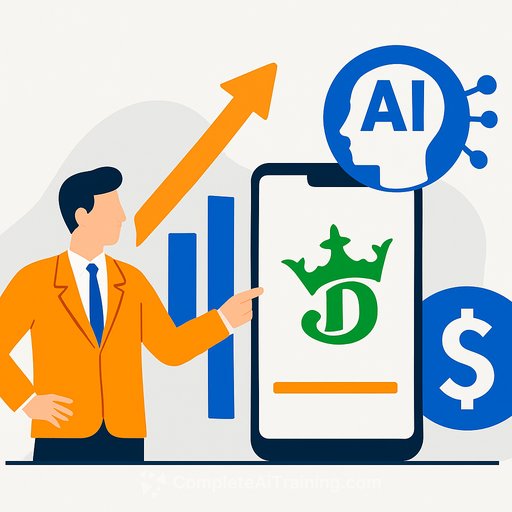xAI's Strategic Shift: Specialist AI Training and Young Leadership
xAI cut roughly 500 generalist data annotators in mid-September 2025 and elevated 20-year-old Diego Pasini to lead AI training. The company is moving from broad labeling to specialist oversight for Grok, betting that depth beats breadth in high-stakes domains.
For executives, the signal is clear: model performance is increasingly a data strategy problem, not just a model architecture problem. Talent bets and org design now sit at the core of AI advantage.
What Changed
xAI reduced its largest "generalist AI tutor" group and plans to expand a "specialist AI tutor" team by 10x. Focus areas: STEM, coding, finance, and medicine-where accuracy, reasoning, and context are unforgiving.
The company is likely pairing automated labeling for routine tasks with human experts for edge cases and evaluation. Early community response is mixed: better data quality vs. execution risk in scaling specialists fast.
Pasini, a standout from an xAI hackathon earlier this year, has begun reorganizing training operations. He replaces a leader with more traditional tenure, reinforcing a performance-first talent thesis.
Why It Matters for Strategy
- Data quality over volume: Specialized curation can lift accuracy where generic datasets plateau.
- Product positioning: Grok may pursue dominance in technical and professional tasks rather than being a broad generalist.
- Org design shift: More domain experts, fewer generalist annotators; heavier reliance on automation for repetitive work.
- Cost structure: Higher cost per label, lower volume, higher impact per datapoint-if selection is precise.
- Talent model: Fast-tracking exceptional young operators to leadership; speed and fresh methods over seniority.
Competitive Angles
If xAI proves that specialist-driven training beats scale-first labeling, expect copycats and a reallocation of budgets across the industry. That pressures incumbents and challengers to rethink their data pipelines and evaluation stacks.
Watch for how Grok stacks up against peers at xAI and research from groups like Google DeepMind. The contest will hinge on domain benchmarks, not just general chat prowess.
Operating Moves You Can Make Now
- Audit your data: Identify domains where outcomes matter most (compliance, financial decisions, patient safety). Prioritize label quality there.
- Stand up a specialist panel: Contract or hire domain experts to define schema, edge cases, and evaluation rubrics.
- Re-skill your generalists: Transition strong performers into QA, guidelines ops, and tool-assisted triage roles.
- Automate the baseline: Use auto-labeling and weak supervision for routine examples; reserve experts for ambiguous and high-value samples.
- Institutionalize evaluation: Build blinded, versioned test sets with domain checks. Tie deployment gates to these scores.
- Clarify governance: Document decision rights for the specialist council to prevent drift and bias.
- Adjust incentives: Comp plans that reward precision, not quantity. Include incident-free runtime and audit pass rates.
Leadership Risk: Young, Fast, High Stakes
- Execution maturity: Pair rising leaders with seasoned operators for cadence, risk reviews, and stakeholder management.
- Cultural friction: Set explicit norms on quality bars, decision speed, and escalation paths to avoid churn.
- Continuity: Document systems, not just heroics-playbooks, data taxonomies, and evaluation protocols.
Metrics to Watch at xAI
- Domain benchmarks: Coding, math, finance, and medical QA performance vs. public and private baselines.
- Error profile: Fewer high-severity mistakes on real tasks (hallucinations, policy breaches, calculation slips).
- Shipping cadence: Frequency of data pipeline and eval updates, with visible uplift per release.
- Hiring signals: Volume and caliber of specialist hires; tenure and retention in new roles.
- Customer traction: Wins in regulated or expert-heavy use cases where generalist models struggle.
Market Repositioning
This strategy could push the market toward segmented AI: models with strong general ability coexisting with specialist systems that win on precision. If Grok posts clear gains in targeted fields, procurement choices will tilt based on task criticality.
Companies anchored in generalist annotation may face switching costs and retooling. Those with expert networks, solid evaluation frameworks, and automation in the loop can move faster.
Talent and Education Implications
Demand will rise for people who blend ML fluency with deep domain knowledge. Expect more employer-led apprenticeships, expert-in-the-loop workflows, and compensation that reflects the impact of accurate labels.
If you're building this bench, consider structured upskilling by role and domain. A practical starting point: map priority roles to focused learning paths via Complete AI Training by job.
Outlook
xAI's bet is simple: curated expertise beats brute-force volume where accuracy and reasoning matter. The next two quarters will tell us if specialist teams and young leadership can convert intention into measurable performance.
If the results land, expect a wider shift to expert-led data curation and leaner, higher-impact training pipelines across AI operations.
Your membership also unlocks:





